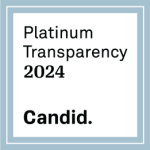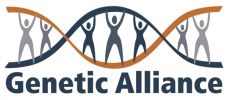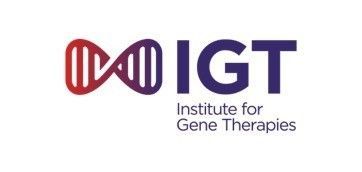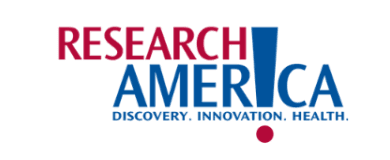COVID-19 Vaccine Antibody Response in Transplant Patients
with Brian Boyarsky, MD PhD
Dr. Boyarsky is a surgery resident at the Johns Hopkins University School of Medicine, Department of Surgery. He graduated with his medical degree at Rutgers Robert Wood Johnson Medical School and recently earned his PhD from the Johns Hopkins Bloomberg School of Public Health under the mentorship of Dorry L. Segev, MD, PhD.
Introduction:
Boyarsky joined Barth Syndrome Foundation on May 27th, 2021, to share published and preliminary results from his team’s ongoing efforts at Johns Hopkins looking at the safety and immunogenicity (or how well an immune response is generated) of COVID vaccines in immunocompromised populations and solid organ transplant recipients.
This effort is of immense interest and value for the Barth and transplant communities as individuals with compromised immune systems were excluded in the mRNA vaccine trials. Furthermore, given the daily regimen of immune-suppressing drugs taken by our community of transplanted individuals, understanding the interplay of mRNA COVID vaccines and transplant status has long-term and real-time impact as we navigate our way through the pandemic. Boyarsky is an investigator of the National Vaccine Research Study for Transplant recipients being conducted by the Epidemiology Research Group in Organ Transplantation (ERGOT).
Q&A:
How are COVID vaccines working in transplanted individuals?
Anti-metabolite immunosuppression and older age is associated with decreased response to the vaccines; the Moderna vaccine and greater time since transplant are associated with an increased response.
How should transplanted individuals use this information?
Get vaccinated and continue to practice caution similar to pre-vaccination. For individuals taking immunosuppressant medications, who have had transplant, and/or who have chronic immunosuppression, do not assume immunity after vaccination.
How can the transplanted community use this information?
Despite the findings on a blunted immune response to the COVID-19 vaccine, Boyarsky strongly recommend that transplant patients and other immunocompromised populations still get vaccinated. They also strongly urge the social networks of these people to get vaccinated in order to provide some level of protection to their family members, friends, loved ones, etc.
Should individuals test their own antibody levels?
The assays used in the study are approved but are largely used in research settings. Consequently, the recommendation from Johns Hopkins University , CDC and the national transplant organizations is to not get antibody tested after vaccination given we do not know what the exact antibody levels mean in an individual as opposed to looking at a large group of participants.
What is the outlook for the transplanted community?
Additional research needs to be done evaluating booster doses, pausing immunosuppression therapies at the time vaccination, and observing longitudinal COVID infection rates in this population. While a 3rd dose is not readily available and cannot be given as part of this study, Boyarsky and his team are interested in observing individuals who do get a 3rd dose.
Summary:
Under the mentorship of Dr. Dorry Segev, MD, PhD, Boyarsky and the Hopkins team had early hypothetical concerns that transplant recipients would not produce antibodies after getting the COVID vaccine. Utilizing social media to engage potential participants in December 2020, the team initiated a prospective study of solid organ transplant recipients in the US in order to evaluate for safety and antibody response to the COVID vaccine, specifically monitoring local and systemic adverse effects, allergy, rejection, , infections, and COVID-19 diagnosis.
Antibody testing is a surrogate measure of protection from COVID after getting the vaccine as it specifically tests for antibodies to the COVID spike protein. The objective of the immune system after vaccination is to generate antibodies to the spike protein (this happens after natural infection as well). If you generate an antibody response, your antibodies will bind to the spike protein if the virus is introduced into the body thereby dampening and mitigating a potential infection.
In a novel approach not often used to facilitate a multi-center clinical study, social media was the primary driver in recruiting participants. Boyarsky and his team successfully recruited over study participants to provide data before and after vaccination by mailing at-home blood collection kits or visiting local LabCorp sites. Using this safe and socially distanced method, antibody testing was conducted at baseline, between the first and second vaccine (in those who received Pfizer or Moderna) and then again at 1, 3, 6 and 12 months after the second dose.
Most transplant recipients voiced two primary concerns: is the vaccine safe, and is it effective? Boyarsky and his team first evaluated how safe vaccines were in this specific population, as published in Transplantation in April, 2021. From this study, most people had some sort of local reaction (redness, swelling) after the first dose, and increased systemic reactions (fatigue, fever, headache) after the second dose. No cases of COVID-19 occurred in the short interval following vaccination.
Immunogenicity, specifically measured by antibody response, of the first dose of the COVID-19 vaccine in transplanted individuals was described in the March 2021, JAMA publication. Boyarsky and others found vaccine antibody was detectable in only 20% of participants. It is surprising that these highly immunogenic vaccines that generate a robust immune response in healthy people provoke a dramatically decreased response in immunocompromised individuals.
Key determinants of a poor immune response:
- 10% of people who were on anti-metabolite medication developed any antibodies at all.
- Anti-metabolites are the most commonly prescribed immunosuppressive agents for transplant and include the commonly used drug mycophenolate (Cellcept). People on these agents had a 70% risk of developing decreased antibodies after the first dose.
- Older patients had a decreased risk for developing antibodies
Key determinants of a strong immune response
- Receiving the Moderna shot resulted in greater likelihood of antibody response
- The further out from a transplantation, the better the immune response to vaccination
A subsequent JAMA publication in May 2021, described the average antibody response after the full vaccination series in transplant recipients.
Key findings include:
- Antibody was detectable in 57% of participants after the second dose (as compared to 100% in health people).
- The authors describe three phenotypes based on their data:
- Non-responders, who have no immune response (43%),
- Weak responders who have a little immune response, especially after the second dose, (40%)
- Boosted responders, who respond positively to both doses (17%).
- Anti-metabolites and drugs that blunt T-cell and B-cell response to the poor antibody/immune response to the vaccine. 45% of people on antimetabolites developed antibodies after the second dose. In fact, patients taking the T/B-cell immune mediator drug belatacept had 94% decreased odds of having a developing an immune response to the vaccine.
Boyarsky et al further describe in another publication in Transplantation the effectiveness of antibody response in transplanted individuals who received the Johnson & Johnson single-dose vaccine. Comparing people who got the J&J shot to those who got an mRNA shot, those who got the J&J shot developed an even poorer response t vaccination. Only 20% of transplanted individuals developed antibodies compared to 56% of the mRNA group, and antibody levels were relatively low even among those who developed antibodies at all.
When evaluating immunogenicity in other immunocompromised populations, such as people with rheumatic and musculoskeletal diseases, the team found improvements compared to transplant patients. 74% of this group developed antibodies after the first dose. Consistent with findings from prior studies, anti-metabolites were still associated with decreased vaccine immune response. Vaccines appear to be safe in these immunocompromised populations withantibody responses driven in large part by medications, specifically B-cell depleting agents that impact lymphocytes (rituximab and mycophenolate). Additional studies in teens and in children are forthcoming.
The impact of this research described has influenced CDC guidelines and was featured in an NPR interview with Boyarksy’s mentor, Dr. Dorry Segev. More information, including forthcoming publications, can be found on the ERGOT website.












